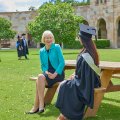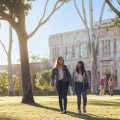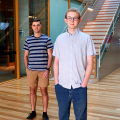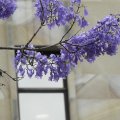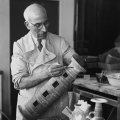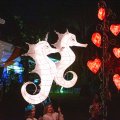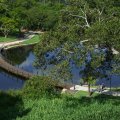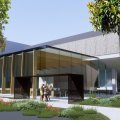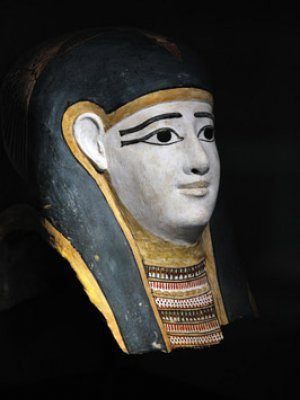
Over 50 years, what began as a cluster of artefacts in a professor's room has grown into Queensland's greatest collection of classical Mediterranean antiquities.
The RD Milns Antiquities Museum at The University of Queensland has come a long way to celebrate its golden jubilee year this March, as it looks to a modern future that includes the digitisation of ancient artefacts in 3D.
The 50-year milestone will be marked by an exhibition Then and Now: 50 Years of Antiquities (1963-2013), which celebrates the museum’s history, stories of its artefacts and the contributions made by donors, staff and students. The exhibition opens on March 22.
The museum’s Director Dr Janette McWilliam said the museum “holds the foremost collection of classical Mediterranean antiquities in Queensland”.
“Over 5000 separate objects span almost 3500 years of history, and are in a variety of materials - stone, pottery, terracotta, metalware, and glass,” she said.
“Together, they give a picture of the technological and artistic advances made by the forerunners of Western civilisation.”
Over the 50-year period, generations of students from The University of Queensland and ancient history students from Brisbane primary and secondary schools have visited the museum, joining thousands from the general public.
Voted UQ’s favourite treasure in 2010, a well-preserved, 2400-year old Egyptian mummy mask remains one of the most popular attractions.
During 2013, the museum will host a number of anniversary events alongside its regular public programs and school visits. The celebrations will culminate in a gala dinner for donors in May and a community event in October, at which museum staff hope to unveil a significant new artefact, the product of a major fundraising campaign throughout the year.
UQ began collecting artefacts in 1963, with the purchase of a ‘red-figure’ Attic amphora at a London auction-house, with the intention of enriching the teaching programs of classics and ancient history at the University,
Originally housed in the classics Professor’s office, the collection grew slowly during the 1970s, under the leadership of Professor Robert Milns and staff of the classics and ancient history departments.
In 2007 the collection was renamed the RD Milns Antiquities Museum after Emeritus Professor Milns, AM, retired professor of classics and ancient history at UQ and a great supporter and benefactor of the museum. During his time at UQ, Professor Milns held the positions of Professor of Classics, Dean of Arts, a University senator and Honorary Research Consultant.
As the museum moves into 2013, some artefacts will be recorded in 3D in a ‘digitising the humanities’ project.
Over 1000 objects have already been entered into a state-of-the-art database system. This will soon be followed by around 100 3D models.
This project allows unprecedented access for users to interact with the museum’s collection electronically in the classroom or from home.
“People will be able to get interactive and up close and personal with objects in a way that would not be possible even when visiting the museum,” Dr McWilliam said.
The R.D. Milns Antiquities Museum promotes the study of the classical civilisations of Greece, Rome, Egypt, and the Near East through their material remains, at primary, secondary, and tertiary institutions in Queensland and Australia, as well as to the general public.
Visitors are welcome at the museum on Level 2 of the University’s Michie Building between 9am and 5pm, Monday to Friday. School and special interest groups are able to organise guided tours in advance for a small fee.
For further information on the museum or its 50th Anniversary celebrations, please contact the Museum Office on (07) 3365 3010 or by email: antiquitiesmuseum@uq.edu.au.
Media: Dania Lawrence (07 33659163 or email d.lawrence@uq.edu.au).
.jpg)
